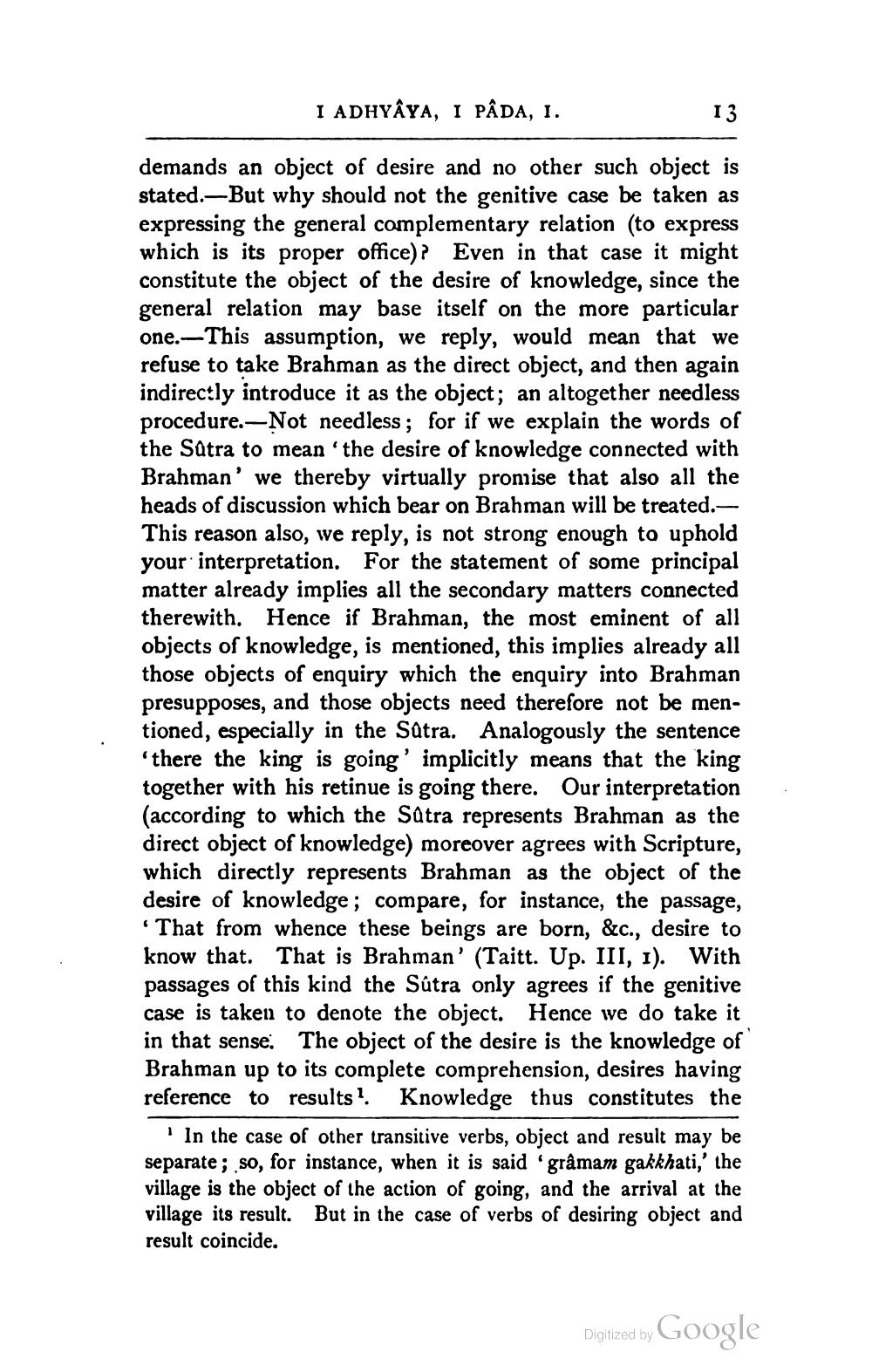________________
I ADHYAYA, I PÂDA, 1.
13
demands an object of desire and no other such object is stated.—But why should not the genitive case be taken as expressing the general complementary relation (to express which is its proper office)? Even in that case it might constitute the object of the desire of knowledge, since the general relation may base itself on the more particular one.—This assumption, we reply, would mean that we refuse to take Brahman as the direct object, and then again indirectly introduce it as the object; an altogether needless procedure.-Not needless; for if we explain the words of the Satra to mean the desire of knowledge connected with Brahman' we thereby virtually promise that also all the heads of discussion which bear on Brahman will be treated. This reason also, we reply, is not strong enough to uphold your interpretation. For the statement of some principal matter already implies all the secondary matters connected therewith. Hence if Brahman, the most eminent of all objects of knowledge, is mentioned, this implies already all those objects of enquiry which the enquiry into Brahman presupposes, and those objects need therefore not be mentioned, especially in the Satra. Analogously the sentence there the king is going' implicitly means that the king together with his retinue is going there. Our interpretation (according to which the Satra represents Brahman as the direct object of knowledge) moreover agrees with Scripture, which directly represents Brahman as the object of the desire of knowledge; compare, for instance, the passage,
That from whence these beings are born, &c., desire to know that. That is Brahman' (Taitt. Up. III, 1). With passages of this kind the Sútra only agrees if the genitive case is taken to denote the object. Hence we do take it in that sense. The object of the desire is the knowledge of Brahman up to its complete comprehension, desires having reference to results? Knowledge thus constitutes the
In the case of other transitive verbs, object and result may be separate; so, for instance, when it is said 'grâmam gakkhati,' the village is the object of the action of going, and the arrival at the village its result. But in the case of verbs of desiring object and result coincide.
Digized by Google




